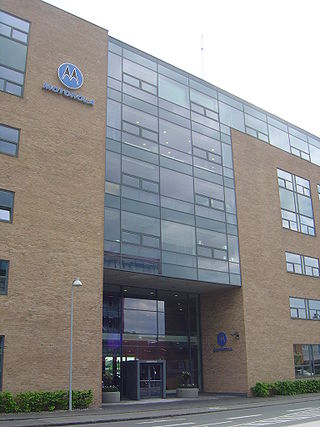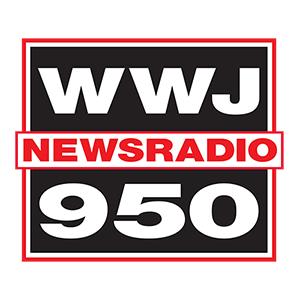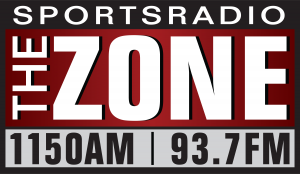
Motorola, Inc. was an American multinational telecommunications company based in Schaumburg, Illinois. It was founded in 1928 as Galvin Manufacturing Corporation by brothers Paul and Joseph Galvin. The company changed its name to Motorola in 1947. After having lost $4.3 billion from 2007 to 2009, the company split into two independent public companies, Motorola Mobility and Motorola Solutions, on January 4, 2011. The reorganization was structured with Motorola Solutions legally succeeding Motorola, Inc., and Motorola Mobility being spun off.

Pirate radio or a pirate radio station is a radio station that broadcasts without a valid license.
Wireless local loop (WLL) is the use of a wireless communications link as the "last mile / first mile" connection for delivering plain old telephone service (POTS) or Internet access to telecommunications customers. Various types of WLL systems and technologies exist.
The American Radio Relay League (ARRL) is the largest membership association of amateur radio enthusiasts in the United States. ARRL is a non-profit organization, and was co-founded on April 6, 1914, by Hiram Percy Maxim and Clarence D. Tuska of Hartford, Connecticut. The ARRL represents the interests of amateur radio operators before federal regulatory bodies, provides technical advice and assistance to amateur radio enthusiasts, supports a number of educational programs and sponsors emergency communications service throughout the country. The ARRL has approximately 161,000 members. In addition to members in the US, the organization claims over 7,000 members in other countries. The ARRL publishes many books and a monthly membership journal called QST.

In the United States and Canada, the Amateur Radio Emergency Service (ARES) is a corps of trained amateur radio operator volunteers organized to assist in public service and emergency communications. It is organized and sponsored by the American Radio Relay League and the Radio Amateurs of Canada.
A mobile network operator, also known as a wireless service provider, wireless carrier, cellular company, or mobile network carrier, is a provider of wireless communications services that owns or controls all the elements necessary to sell and deliver services to an end user, including radio spectrum allocation, wireless network infrastructure, back haul infrastructure, billing, customer care, provisioning computer systems, and marketing and repair organizations.

WWJ is a commercial AM radio station licensed to serve Detroit, Michigan, featuring an all-news format known as "Newsradio 950 WWJ". Owned by Audacy, Inc., the station services Metro Detroit, is the market affiliate for CBS News Radio, and the flagship station for the Michigan Sports Network. Operating on a regional broadcast frequency, its studios are in the Panasonic Building in Southfield.
In broadcasting and radio communications, a call sign is a unique identifier for a transmitter station. A call sign can be formally assigned by a government agency, informally adopted by individuals or organizations, or even cryptographically encoded to disguise a station's identity.
WOC is a commercial AM radio station, licensed to Davenport, Iowa, and serving the Quad Cities of Iowa and Illinois. WOC is owned by iHeartMedia, Inc. It broadcasts a news/talk format, under the slogan "The Quad Cities News Leader." Its studios are located at 3535 East Kimberly Road in Davenport. Its transmitter is located at an antenna farm in Bettendorf, Iowa, near the campus of Scott Community College. WOC broadcasts with 5,000 watts with a directional signal to avoid interfering with other stations on 1420 kHz.

In the United States, amateur radio licensing is governed by the Federal Communications Commission (FCC). Licenses to operate amateur stations for personal use are granted to individuals of any age once they demonstrate an understanding of both pertinent FCC regulations and knowledge of radio station operation and safety considerations. Applicants as young as five years old have passed examinations and were granted licenses.
KZQZ was a commercial radio station that was licensed to serve St. Louis, Missouri at 1430 AM, and broadcast from 1922 to 2020. As WEB it was one of the first radio stations to have been established and licensed in the Greater St. Louis metropolitan area, and was known for most of its life as WIL. The Federal Communications Commission revoked the license for the station and its three co-owned stations in March 2020 after discovering that a convicted felon had effective control of the stations in their last years; despite the revocation, KZQZ and KQQZ continued to broadcast without a valid license into April 2020.
The New Zealand Association of Radio Transmitters (NZART) is a non-profit organisation of amateur radio enthusiasts in New Zealand. It represents New Zealand amateur radio operators nationally and internationally. NZART is a founding member of the International Amateur Radio Union. It is an association of individual members, however those members are encouraged to form local branches.
The Reel Top 40 Radio Repository, sometimes called REELRADIO, is a virtual museum of radio broadcasts, primarily airchecks from the "Top 40" era of radio in North America. The archives are available by streaming. Established in 1996 as the first online airchecks archive, it was transferred to a dedicated not-for-profit organization, REELRADIO, Inc., in 2000. The site was organized as a series of "collections"; most collections represent the archives of a single contributor. As of April 2018, the repository featured more than 3,568 exhibits.
The Wireless Ship Act of 1910, formally titled "An Act to require apparatus and operators for radio-communication on certain ocean steamers" and also known as the "Radio Ship Act of 1910" and the "Radio Act of 1910", was the first federal legislation regulating radio communication in the United States. It required certain ocean-going vessels exiting U.S. ports to carry radio equipment, and although it did not require stations or operators to be licensed, it did require certification that operators and radio equipment met minimum standards.
Amateur radio or ham radio is practised by more than 22,000 licensed users in India. The first amateur radio operator was licensed in 1921, and by the mid-1930s, there were around 20 amateur radio operators in India. Amateur radio operators played an important part in the Indian independence movement with the establishment of illegal pro-independence radio stations in the 1940s. The three decades after India's independence saw only slow growth in the number of operators until the then Prime Minister of India and amateur radio operator, Rajiv Gandhi (VU2RG), waived the import duty on wireless equipment in 1984. Since then, numbers have picked up, and as of 2007, there were more than 16,000 operators in the country. Amateur radio operators have played a vital role during disasters and national emergencies such as earthquakes, tsunamis, cyclones, floods, and bomb blasts, by providing voluntary emergency communications in the affected areas.

KZNE, branded as "The Zone 1150 AM – 93.7 FM", is a commercial sports radio station licensed to serve College Station, Texas. Owned by the Bryan Broadcasting Company, KZNE covers College Station, Bryan and much of the Brazos Valley. Studios are located in College Station, with a transmitter site in Bryan.

Amateur radio, also known as ham radio, is the use of the radio frequency spectrum for purposes of non-commercial exchange of messages, wireless experimentation, self-training, private recreation, radiosport, contesting, and emergency communications. The term "amateur" is used to specify "a duly authorized person interested in radioelectric practice with a purely personal aim and without pecuniary interest"; and to differentiate it from commercial broadcasting, public safety, or professional two-way radio services.
Call signs in Canada are official identifiers issued to the country's radio and television stations. Assignments for broadcasting stations are made by the Canadian Radio-television and Telecommunications Commission (CRTC), while amateur stations receive their call signs from Innovation, Science and Economic Development Canada. Conventional radio and television broadcasting stations assignments are generally three, four or five letters long and almost exclusively use "C" call signs; with a few exceptions noted below, the "V" calls are restricted to specialized uses such as amateur radio.
Raoul Poliakin (1917–1981) was an Egyptian-born American arranger and conductor of popular orchestral music. He appeared on countless albums, including those of Frank Sinatra, Perry Como, Bing Crosby, Dean Martin, Sarah Vaughan, Peggy Lee, Artie Shaw, Tommy Dorsey, Antonio Carlos Jobim and Wes Montgomery.






